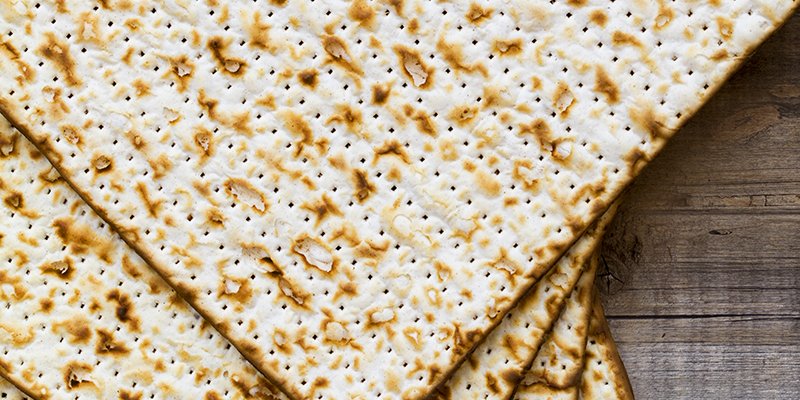
The Exodus from Egypt is one of the most central themes in Scripture. Many of the commandments specifically are done "as a memorial of the Exodus". We are often reminded in the Torah "I am HaShem who brought you up out of Egypt". Although all of the three pilgrimage festivals are connected with the Exodus, one, Passover (Pesach), is totally about it. How we observe and celebrate Passover today, is vastly different from the way it was observed in Temple times, as the Passover Sacrifice cannot now be brought. Together with circumcision, it is a rare case of "He shall be cut off from his people", usually reserved for violation of the most severe negative commands.
Many of the commandments involving Passover can be performed in the absence of a Temple. Those that cannot be done, are remembered by various symbolic actions, that we may remember that some things are missing, only to be regained at the building of the Temple. Of those that remain, we have the mitzvah of eating matzah (to be defined below), the non-eating and non-possession of Chametz (leaven; likewise defined below), and the retelling the story of the Exodus. The Talmud details what must and what must not be done, as like in most mitzvot, there is insufficient information on how to fulfill these commandments in the Written Torah. However, customs grew up in all communities, which often overshadow both the Biblical and rabbinical laws (see my series "Custom" in the files section). The difference between Ashkenazi and Sephardi attitudes towards the place of custom in Judaism, accounts for the VAST differences between the observance of Passover in these two communities. At the risk (likelihood?) of offending some people, I will trace the origins and status of many of these customs.
What is "chametz"? Literally, it means "sour". Many followers of Karaite heresy will consume no fermented foods during Passover (yogurt, cheese, wine, as well as grain products which have risen). In our Oral Torah, the definition of "chametz" and the definition of "matzah" are inextricably linked. There are five grains that, if allowed to ferment, become chametz. The same grains, if baked before fermentation can take place, result in matzah. The Torah tells us that the Israelites left Egypt in haste, and had no time for their dough to rise; hence the command of matzah. (A problem here is that they were also commanded to eat matzah at their Passover observance hours BEFORE they left Egypt! I will deal with this problem in a later post).
The Talmud lists the five grains. However, we are actually only certain about the identification of two of them. The present understanding of the identity of these grains comes from the Middle Ages. Already in the eleventh century it was pointed out that some of these identifications are impossible. Both among Ashkenazim and Sephardim, most accept the traditional identification. Some, however, are adamant that we must not. There is also a view, only among Ashkenazim, that even if some are doubtful, over a thousand years of tradition makes it acceptable. Sephardim totally reject the ideas that a mistaken custom could alter a Biblical rule. The ones we know for sure are wheat and barley. The doubtful ones are spelt, rye and oats. These grains are the only ones that can become chametz. Likewise, they are the only grains from which matzah can be baked.
Just for the record, I agree with those who will only use wheat or barley, and consider oats and rye to be impossible, and spelt to be highly unlikely. I will admit that I am in the minority on this issue. Ashkenazi tradition includes a whole slew of other grains, seeds, and legumes. insisting that this was an ancient enactment, while most Sephardim believe that to be an error, based on a custom of housewives. This, too, will be the topic of a subsequent post. A complicating factor in all of this is the question of how far we need to go to avoid eating and possessing chametz. Traditions vary widely, for reasons I will discuss in another post. But this question is pivotal in to what degree our Passover observance is "laid back", or tension inducing. Against this, we must consider the Biblical command of "Rejoice in your festival". Too laid back might result in violating the prohibition of chametz, while overly strict, would tend to violate the theme of "joy".
The first year my wife and I were married, she received a letter (remember those?) from a friend, who wrote "Thank G-d Pesach is over". I told my wife, Sima, to write back to her friend that we read in the Ethics of the Fathers that one who despises the holidays, loses his share in the World to come. In which direction should we lean? What hints do we have in the Talmud and subsequent sources? We have much to discuss…